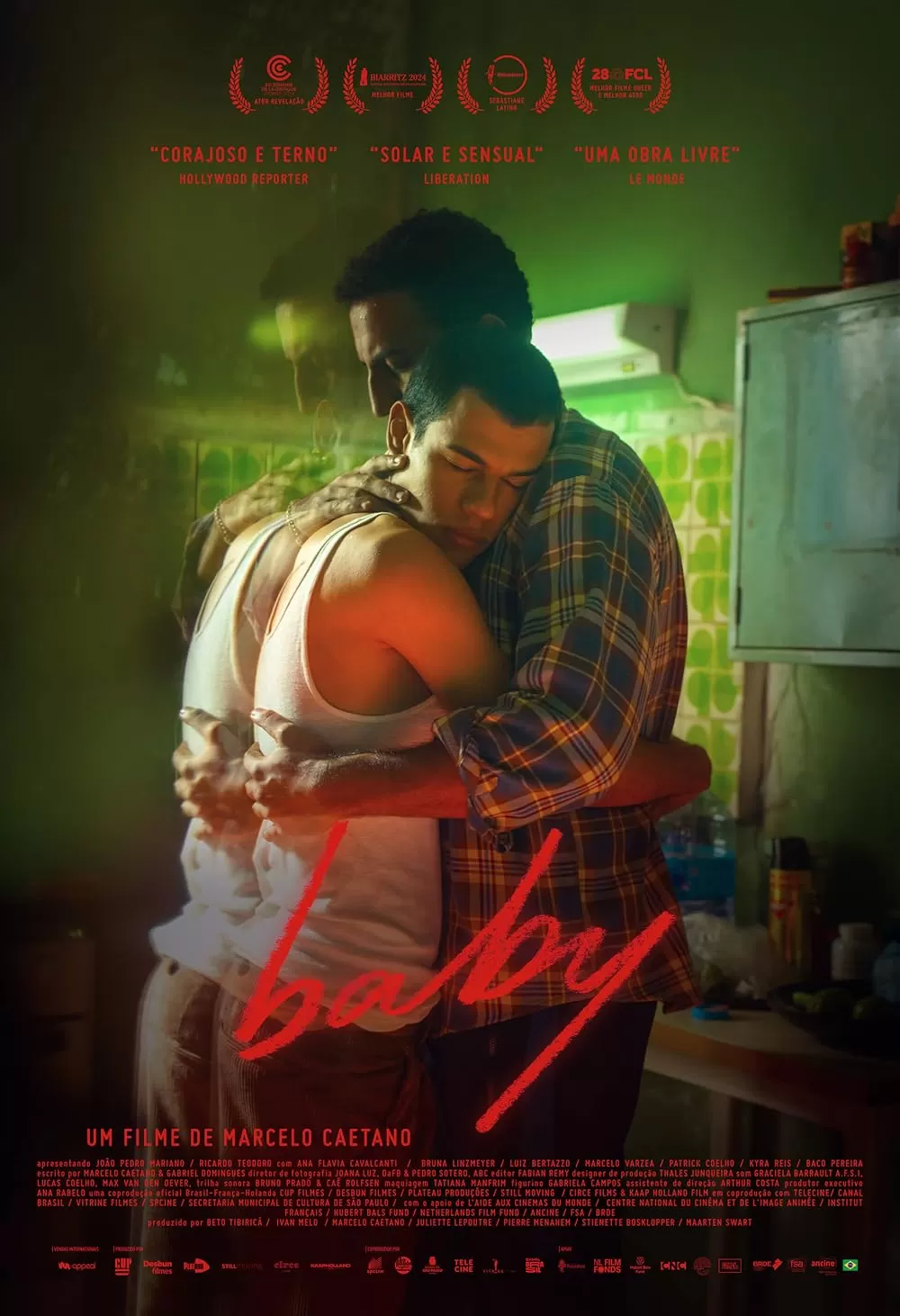
After spending two years in a juvenile detention center, Wellington, now 18, returns home only to discover that his alcoholic father, a police officer, has left the city with his mother. Without a place to go and in search of his mother, Wellington finds himself spending time with his queer friends at an adult cinema. There, he meets Ronaldo, a 42-year-old escort who becomes both a mentor and a lover. Ronaldo, initially guiding Wellington as a father figure, soon introduces him to the world of sex work, teaching him the ropes while offering both emotional and physical intimacy. When Ronaldo gives him the nickname “Baby,” it marks a turning point for Wellington, as he begins to fully immerse himself in Ronaldo’s world. This world includes moments of joy, such as meeting Priscila, Ronaldo’s partner, and facing darker moments, like dangerous interactions with drug dealers like Torres, who develops a troubling interest in Wellington.
As Wellington’s relationship with Ronaldo deepens, he briefly explores a romantic connection with another older man, but upon learning about his past incarceration, the new relationship ends. Just as Wellington seems to be moving forward, he becomes embroiled in a dangerous situation with drug dealers, leading to his arrest. However, he is eventually released. In a poignant subplot, Wellington finds his mother in another town, only to discover that she has moved on with her life and has no interest in reconnecting. The emotional climax of the film comes when Wellington, now living independently with his queer friends, experiences a bittersweet moment of closure with Ronaldo during a chance encounter on a bus.
The film is as much about Ronaldo as it is about Wellington. The multifaceted and fluid nature of their relationship – part sexual, part fatherly, part business – forms the emotional core of the story. Their bond may initially seem like a confusing mix of care, possession, mentorship, and protection, but somehow it works. I was able to connect deeply with every aspect of their relationship. The way Ronaldo starts by offering Wellington a simple meal, then moves on to a more intimate bond, speaks volumes about their evolving connection. Ronaldo’s guidance, from teaching Wellington survival tactics to encouraging him to embrace sex work, could be seen as predatory, but it feels grounded in genuine care and the desire to help Wellington navigate a harsh world. The casting of both leads is perfect. Ronaldo, the rugged, chiseled older man, contrasts beautifully with Baby’s youthful, clean-shaven appearance, creating a dynamic that is both striking and meaningful.
Ultimately, the film is not just about surviving in today’s world; it is about relationships, love, and the importance of family. Beneath the transactional sex and gritty survival stories, the film exudes a deep compassion, showcasing queer joy in many forms—from Wellington’s chosen family of young gay men dancing on the streets for money, to Ronaldo and Priscila’s unconventional, yet loving family unit.
“Baby” is a raw, honest portrayal of healing hearts amidst a world of tough truths. It’s about two men trying to live their lives as best they can, intersecting as friends, lovers, and colleagues in an ever-changing and often painful reality. This film is a beautiful and unique exploration of queer experiences, different from what we often see in mainstream queer cinema. While I am unsure of how the film has been received in Brazil or internationally, it unquestionably deserves a wider audience. Kudos to the producers and director for crafting such a powerful, emotionally resonant film.




![O Senador (Portuguese) [The Senator]](https://www.gayrr.com/wp-content/themes/wordpress-theme-puock-2.8.13/timthumb.php?w=120&h=80&a=c&zc=1&q=90&src=https://www.gayrr.com/wp-content/uploads/replace/2025/04/19/cb85fcc9a0b1ca7f4497ea6856af6eb9.webp)
